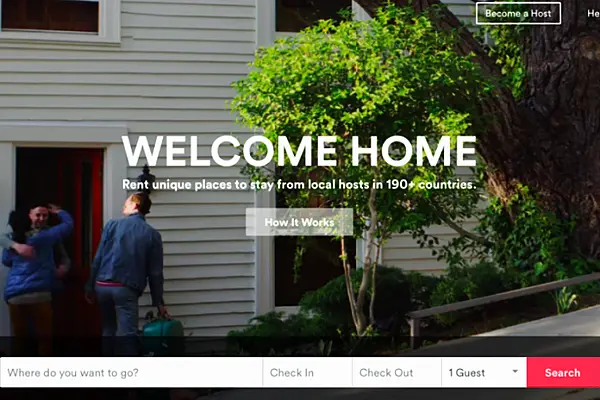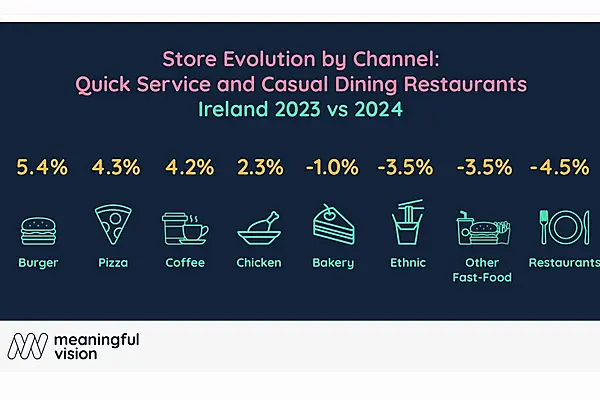Airbnb is on a mission to be more than a home-sharing platform. It wants to be a flight booker, an itinerary planner and a vacation-home manager. To become a global travel behemoth, Airbnb is considering a combination of acquisitions and partnership deals to quickly grow its portfolio, according to three people with knowledge of Airbnb's plans.
The company's targets are in luxury tourism, airfare aggregation, group payments and guest-management, said the people, who asked not to be identified because Airbnb hasn't authorized them to speak publicly. Airbnb is also focused on doing deals in China and India, the people said.
Airbnb declined to comment on specifics of its business plans. "We are always looking to provide our community with access to new and different options, but we have no announcements to make," Nick Papas, a spokesman for Airbnb, wrote in an e-mail. One of the people said acquisitions are not a material part of the company's strategy and that Airbnb does not believe it needs to rely on acquisitions to grow.
On Thursday, Bloomberg reported that Airbnb's board met to approve the purchase of Luxury Retreats, a vacation-home management company in Montreal. The sale is expected to garner no more than $300 million in cash and stock. Airbnb is also in the process of purchasing the group-payments company Tilt. Airbnb declined to comment on the deals because they are not yet public.
New product categories would generate alternative revenue sources for Airbnb. Over the last few years, after pressure from regulators, Airbnb agreed to place limits on how long hosts can rent their homes to travelers in certain cities. Officials in London, New York, Amsterdam, San Francisco and Barcelona have claimed Airbnb’s short-term rentals violate local zoning laws and displace long-term residents. The policymakers continue to seek laws that could place considerable restrictions on Airbnb’s money-making ability.
Airbnb became profitable in the second half of 2016, when revenue at the company increased more than 80 percent that year, Bloomberg reported. Airbnb expects to remain profitable in 2017. Since launching in 2008, the home- and apartment-rental company has raised $3.1 billion in capital, and still has nearly all its funding, three investors said. The investors asked not to be identified because they have signed non-disclosure agreements.
The company's identity shift is already underway. Last year, Airbnb began selling unique travel experiences, like hat making tutorials in London and coffee-roasting expeditions in Cape Town. In November, the company announced it had a flight-booking tool and an itinerary-planning feature in the works. The trip planner, it said, would give users personalized travel suggestions based on their location and past behaviors. In order to deliver on the ambitious project, two of the people said, Airbnb is looking to partner with or acquire a travel search engine similar to competitor Priceline Group Inc.'s Kayak.com.
"Airbnb has dominated in the urban-rental market but still has lots of room to grow in vacation rental markets, where Expedia's HomeAway is stronger and the average transaction value is significantly higher," said Douglas Quinby, an analyst at the travel industry research firm Phocuswright. Quinby, who expects Airbnb will pursue its initial public offering over the next 12 to 24 months, said Airbnb will need to use that time to drive growth in new product categories, such as vacation rentals and business travel, as well as new geographies, to justify its private market valuation of $31 billion.
Airbnb Chief Financial Officer Laurence Tosi has been a driving force behind the company's newfound profitability, the investors said. Tosi, the former CFO of Blackstone Group LP, joined the startup in 2015 and quickly built a finance and development team composed of former Blackstone colleagues and directors from Goldman Sachs.
The investors said they don't expect Airbnb to spend the nearly $3 billion it has sitting in cash. Airbnb is in the process of negotiating a deal to buy the group payments company Tilt for just $12 million in a combination of cash and stock, said an investor in one of the companies. Tilt was last valued by investors at $400 million. Airbnb and Tilt declined to comment on the acquisition.
In October, Airbnb considered purchasing the flight-booking website Skyscanner Ltd, said two people familiar with the matter. Airbnb declined to bid on the Scottish startup, which ultimately sold to Ctrip International Ltd. for $1.7 billion. And in August, Airbnb held meetings to acquire the Chinese home-sharing site Xiaozhu.com. The talks got serious by November, but in December, Airbnb determined the company lacked the high-end appeal it sought for its Chinese expansion. Airbnb and Xiaozhu declined to comment.
News by Bloomberg, edited by Hospitality Ireland









